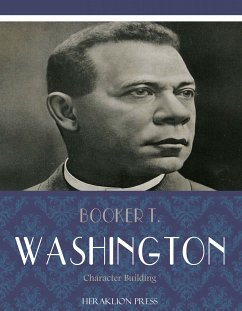Booker T. Washington became one of the most important figures of the early 20th century America. Despite being born a slave, Washington believed in peaceful protest. Washington wrote extensively on his time as a slave as well as other parts of his life. This edition of Washingtons Character Building includes a table of contents.
Dieser Download kann aus rechtlichen Gründen nur mit Rechnungsadresse in A, B, BG, CY, CZ, D, DK, EW, E, FIN, F, GR, H, IRL, I, LT, L, LR, M, NL, PL, P, R, S, SLO, SK ausgeliefert werden.
Hinweis: Dieser Artikel kann nur an eine deutsche Lieferadresse ausgeliefert werden.









